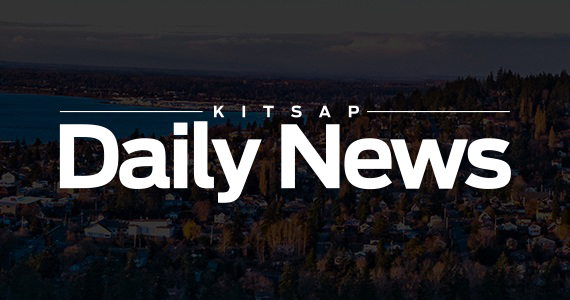Last month “The Strong People: A History of the Port Gamble S’Klallam Tribe” was released. This book is a collection of historical accounts and personal stories written by elders and members of the Port Gamble S’Klallam Tribe. One topic in particular surprises readers: the S’Klallam connection to baseball.
Later this month, the option agreement on Pope Resources’ land central to the Kitsap Forest & Bay Project expires. Good progress has been made toward conserving at least a portion of almost 7,000 acres in North Kitsap and two miles of Port Gamble Bay shoreline. The Port Gamble S’Klallam Tribe has been a principal partner in this effort since it began in 2011.
For a year beginning October 2011, Tribal members and staff and Audubon came together 23 times to count birds in three key locations around Port Gamble Bay, including Point Julia. This area on the shores of Port Gamble Bay has special significance: it has been home to my Tribe since our ancestors were located from their village at Port Gamble in 1853.
The Port Gamble S’Klallam Tribe recently made a very exciting acquisition: Heronswood, the world-famous botanical garden and nursery in Kingston.
As I write this, young adults from across Kitsap County are celebrating their graduations. Whether from high school or college, graduation is a time to reflect on accomplishments and prepare for the road ahead.
Every member of the Port Gamble S’Klallam Tribe plays a role in protecting our stories, culture and traditions. Sometimes the passage of time and creep of modern life cause some of the old ways to fade away, but what is lost isn’t always forgotten.
According to the 2010 U.S. Census, 28 percent of American Indians and Alaska Natives, age 5 and older, speak a language other than English at home. This is compared to 21 percent of the nation as a whole.
On March 29, officials from the Administration for Children and Family and the Department of Health and Human Services convened with me and other leaders from the Port Gamble S’Klallam Tribe to celebrate a momentous achievement.
In 1992, the Port Gamble S’Klallam Tribe became one of the first self-governing tribes in the United States, assuming control over several federal programs.
As a member of and chairman for the Port Gamble S’Klallam Tribe, I often hear confusion about how tribal governments are structured and decisions are made. It’s not unusual for people to think that all tribes share leadership, opinions and priorities.
Earlier this year, a historic event took place in Kitsap County. On an overcast day in mid-October, I joined leaders from Olympic Property Group (OPG), Kitsap County, Suquamish Tribe, and land conservation group Forterra (formerly Cascade Land Conservancy) to announce an effort to conserve as much as 7,000 acres and two miles of shoreline along Port Gamble Bay.
Do you know the name of the gulls most common to our area? You would be forgiven for thinking “sea”; their proper name is actually Glaucous Winged Gull. Rarely far from water, this bird is often mistaken for the Western Gull and lives, on average, 15 years.
The Port Gamble S’Klallam Tribe recently announced plans for an expansion of The Point Casino. Four years in the making, we’ve purposely taken our time with these plans to make sure we got it right.
This July, more than 100 canoes from Indian nations across the region will embark on the yearly tribal Canoe Journey. Canoeing has been a part of the Native way of life for thousands of years. Not only are canoes a distinctive cultural symbol, but they are a practical and essential means of transportation, especially for coastal tribes.
It was a cloudy day in early March that changed the lives of a handful of our S’Klallam families. On…
I want to start this column by sharing with you an excerpt from an article written by Gina Stevens, a…
Editor’s Note: This is the first installment of a regular column by members of the Port Gamble S’Klallam Tribe, based…


